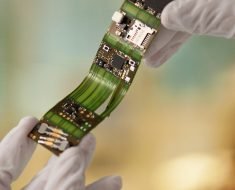Ability to understand and subsequently speak a new language requires the ability to accurately discriminate speech sounds of a given language. When we start to learn a new language the differences between speech sounds can be very difficult to perceive. With enough active practice the ability to discriminate the speech sounds enhances.
This type of learning is called perceptual learning. As a consequence of learning, new memory traces are formed in the brain. In contrast, in early infancy passive sound exposure is enough to enhance auditory discrimination during so called sensitive period.
In the recently published study, group of researchers from the University of Jyväskylä in collaboration with the Beijing Normal University tested whether passive exposure to unfamiliar speech sounds can result in enhanced discrimination ability also in adulthood.
It was found that the mere passive exposure to foreign speech for several consecutive days leads to enhanced discrimination ability as indexed by the brain response measurements. This was previously thought to occur only during the sensitive period in infancy.
Source: Read Full Article





